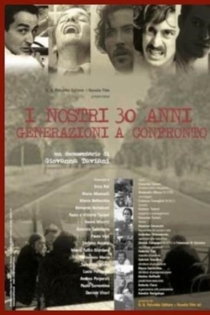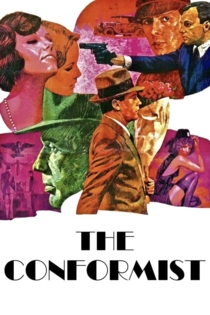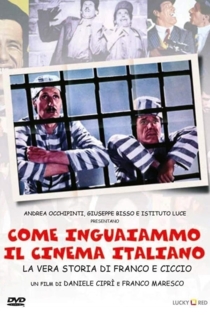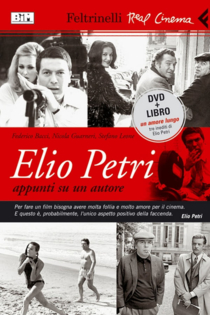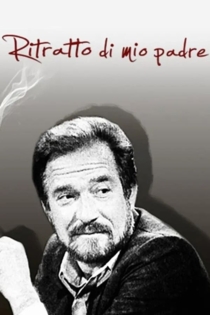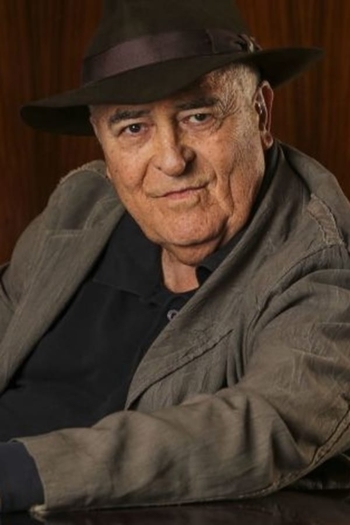
Bernardo Bertolucci
1940 - 2018Description above from the Wikipedia article Bernardo Bertolucci, licensed under CC-BY-SA, full list of contributors on Wikipedia.
The Story of Film: An Odyssey
Mark Cousins
Mark Cousins, Jean-Michel Frodon
Эпическое путешествие по мировыми столицам от Болливуда до Голливуда, это «золотой век» 20-х годов и появление звука. Это истории секса и мелодрамы в 50-е и великие кинозвезды 50-х и 60-х, масштаба Федерико Феллини. Это американский кинематограф 60-х и 70-х, когда режиссеры пытались изменить мир, появление картин «Звездные войны», «Челюсти» и «Изгоняющий дьявола». Это 80-е, время протеста в кино, новый «золотой век» 90-х и появление новых звезд на небосклоне в наше время.
The Story of Film: An Odyssey

Ennio
Giuseppe Tornatore
Ennio Morricone, Wong Kar-wai
A portrait of Ennio Morricone, the most popular and prolific film composer of the 20th century, the one most loved by the international public, a two-time Oscar winner and the author of over five hundred unforgettable scores.
Ennio
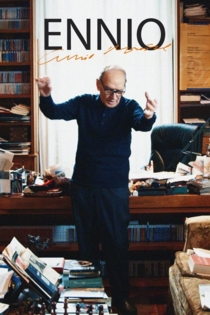
Alida
Mimmo Verdesca
Giovanna Mezzogiorno, Piero Tosi
A complete and never-before-seen portrait of the life of a young girl from Pula (Istria) who quickly became one of the most famous and beloved actresses of Italian and international cinema, told through the words of her unpublished letters and diaries, photographs, homemade films in 8 mm, and new interviews with her relatives, friends, and collaborators.
Alida Valli: In Her Own Words
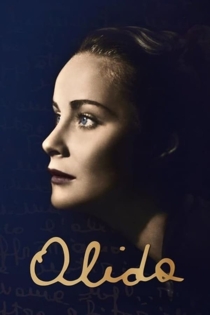
The Last Emperor
Bernardo Bertolucci
John Lone, Joan Chen
A dramatic history of Puyi, the last of the Emperors of China, from his lofty birth and brief reign in the Forbidden City, the object of worship by half a billion people; through his abdication, his decline and dissolute lifestyle; his exploitation by the invading Japanese, and finally to his obscure existence as just another peasant worker in the People's Republic.
The Last Emperor
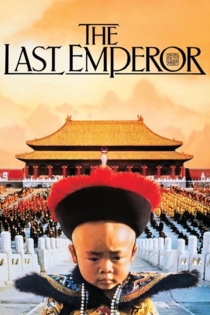
1900
Bernardo Bertolucci
Роберт Де Ниро, Gérard Depardieu
Прекрасным летним утром 1900 года в итальянской провинции Эмилия появляются на свет два мальчика. Олмо — еще один рот в многодетной семье бедного крестьянина. Альфредо — отпрыск богатых помещиков. Несмотря на столь различное социальное положение, мальчики не только подружатся, но пронесут дружбу через всю свою жизнь. Они — дети страшных лет Европы, чье отрочество придется на годы Первой мировой войны, а зрелость вступит в свои права под грохот гитлеровских орудий. Да и в промежутке событий будет предостаточно. Фашистская Италия — страна неспокойная. Меняется вековой уклад общества, народ все больше узнает от социалистов о своих правах, Муссолини использует смуту для захвата власти. Ветер перемен врывается и в провинцию Эмилия. Обостряются отношения крестьян и землевладельцев, но Олмо и Альфредо остаются друзьями. Сплетение судеб — близких и бесконечно далеких, сплетение жизни личности и жизни страны.
1900
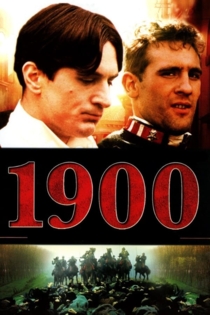
Paul Bowles: The Cage Door Is Always Open
Daniel Young
John Waters, Paul Bowles
The American composer and author Paul Bowles was a man with a great deal of charisma and influence. When he moved to Tangier, Morocco, in 1949, half the world followed him to the enigmatic city. His marriage with author Jane Bowles was a loving relationship of opposites, even though both were homosexual. Based on exclusive interviews with Bowles shortly before his death interwoven with anecdotes recounted by his friends and co-workers, the film portrays a daring and visionary life as well as a relationship shaped by an interdependency that encompassed much more than sexuality.
Paul Bowles: The Cage Door Is Always Open
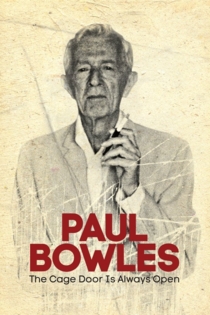
Claude Jutra: An Unfinished Story
Paule Baillargeon
Claude Jutra, Bernardo Bertolucci
A revealing look at the great Quebecois director who gave us such classic films as Mon Oncle Antoine, A toute prendre and Kamouraska: Power of Passion. Amidst the rise of French-Canadian identity and the political struggles of the '60s, Jutra was at the forefront of a group of artists dedicated to social change and attacking taboo.
Claude Jutra: An Unfinished Story
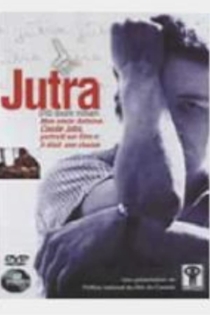
Wie de Waarheid Zegt Moet Dood
Philo Bregstein
Alberto Moravia, Laura Betti
Philo Bregstein tells us this film looks at Pasolini's life and art to explain why he died. The film traces Pasolini's life chronologically - family roots, hiding during World War II, teaching, moving to Rome, being arrested and acquitted many times, publishing poems, getting into film, being provocative, and being murdered. Interviews with Alberto Moravia, Laura Betti, Maria Antonietta Macciocch, and Bernard Bertolucci are inter-cut with readings of Pasolini's poems and with clips from four films - primarily the Gospel According to St. Matthew - to illustrate his changing ideas and points of view. Bregstein makes a case for Pasolini's being lynched.
Whoever Says the Truth Shall Die
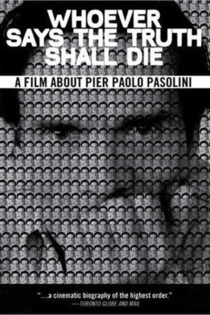
An Opera of Violence
Lancelot Narayan
Bernardo Bertolucci, Claudia Cardinale
First part of a three-part documentary series on the making of Once Upon a Time in the West, Italian filmmaker Sergio Leone's masterpiece, released in 1968. (Followed by The Wages of Sin.)
An Opera of Violence
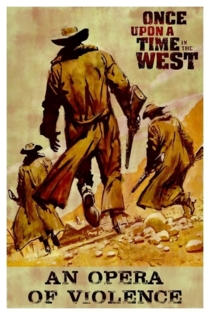
Writing with Light: Vittorio Storaro
David Thompson
Vittorio Storaro, Bernardo Bertolucci
Documentary about Vittorio Storaro, cinematographer of Apocalypse Now, The Last Emperor, Reds, Il Confimista, 1900. Vittorio Storaro talks about his work, along with collaborators like Warren Beatty and Bernardo Bertolucci and peers like Nestor Almendros. On-set footage from Dick Tracy and The Sheltering Sky. Storaro explains his zany theories about light and colour, and gives a potted history of lighting in the cinema. Sublime.
Writing with Light: Vittorio Storaro

